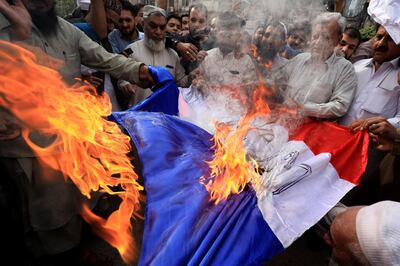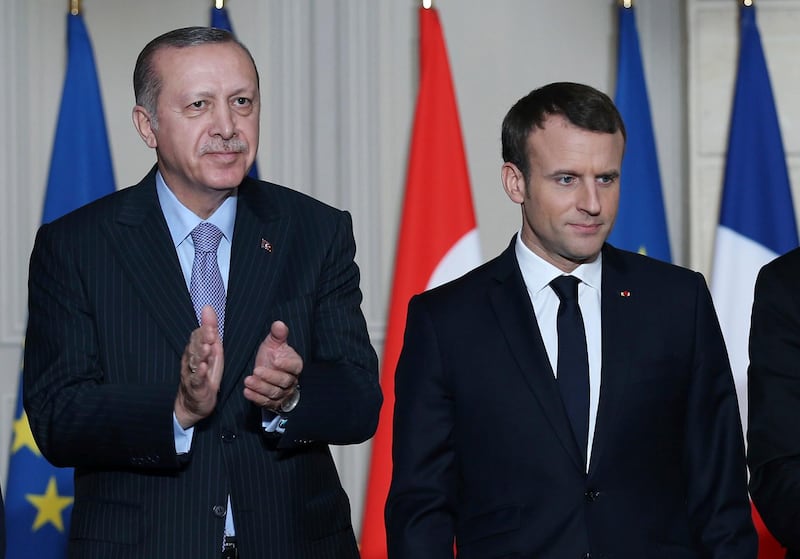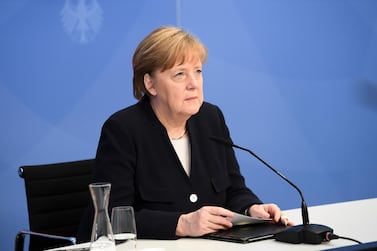The personal feud between Emmanuel Macron and Recep Tayyip Erdogan is developing into a long-term geopolitical rivalry between France and Turkey, a report said.
The presidents clashed over a series of issues including Libya, Syria, the Eastern Mediterranean and cartoons of the Prophet Mohammed.
At the height of their quarrel last year, Mr Erdogan suggested that the French leader needed mental help over his attitude towards Muslims.
Germany this week sought to offer a European olive branch to Turkey, telling Ankara that it could send a positive signal to the EU by pulling its troops out of Libya.
But a report by the French Institute of International Relations said it was unrealistic to expect improved relations with France because “Macron vs Erdogan is a fight both leaders want ahead of elections in their countries”.
Mr Macron is up for re-election in 2022 and faces a potential rematch with far-right candidate Marine Le Pen. Mr Erdogan’s next election is in 2023.
The IFRI report said the political rift was “gradually turning into a long-time geopolitical rivalry” in which France sees itself as a defender of Europe.
Mr Erdogan’s assertive behaviour evokes images in France of a “powerful Turk as a historical competitor, challenger, and even enemy of the West”, the report said.
“Hence, Erdogan is essentially portrayed as a threat and a danger for France and Europe.”
The IFRI analysis described the stand-off as a geopolitical contest for influence in the Eastern Mediterranean.
France last year increased its military presence in the region and took part in exercises with Italy, Greece and Cyprus.
It accused Turkey of playing a “dangerous game” in Libya, where one of the two warring governments was heavily backed by Turkish troops and Syrian fighters sent by Ankara.
A unity government took office in Libya in March, and Turkey is now under pressure to withdraw its forces from the country.

France fears Turkish influence in the Mediterranean
IFRI said that Turkey’s use of proxy warfare risked giving Ankara an advantage over Paris in their geostrategic rivalry.
“Turkey acquired in Syria its first experience in asymmetrical, proxy warfare,” the report said.
“It has since then attempted to replicate this experience on other fronts (Libya, Nagorno-Karabakh) through mobilising non-state groups and militias to advance its interests and political agenda.
“Paris is concerned that this is becoming a cost-effective way for Turkey to maintain a presence on several fronts and multiply its power of disruption, while at the same time avoiding military overstretch.”
IFRI said France’s aims in Libya were to restrain Turkey’s regional ambitions, preserve French influence in North Africa and contain the spread of political Islam.
Mr Macron launched a fierce defence of France's secular values against radical Islamic extremism after the beheading of a school teacher last autumn.
After Mr Macron defended the publication of cartoons considered blasphemous by Muslims, Mr Erdogan called for a boycott of French goods.
“What can one say about a head of state who treats millions of members from different faith groups this way: first of all, have mental checks,” Mr Erdogan said.
Efforts to cool tensions between Europe and Ankara led to EU leaders agreeing in March to provide more money for refugees hosted by Turkey.
Mr Erdogan said in April that Turkey was committed to EU membership, although efforts to improve ties were set back by a bizarre row involving President of the European Commission Ursula von der Leyen being relegated to a sofa on a visit to Ankara.
Germany Foreign Minister Heiko Maas said on Thursday that relations were improving but it was up to Ankara to press its case for closer ties.
Asked what more Germany could do for Turkey’s longstanding efforts to join the EU, Mr Maas said: “Turkey can contribute the most.”








